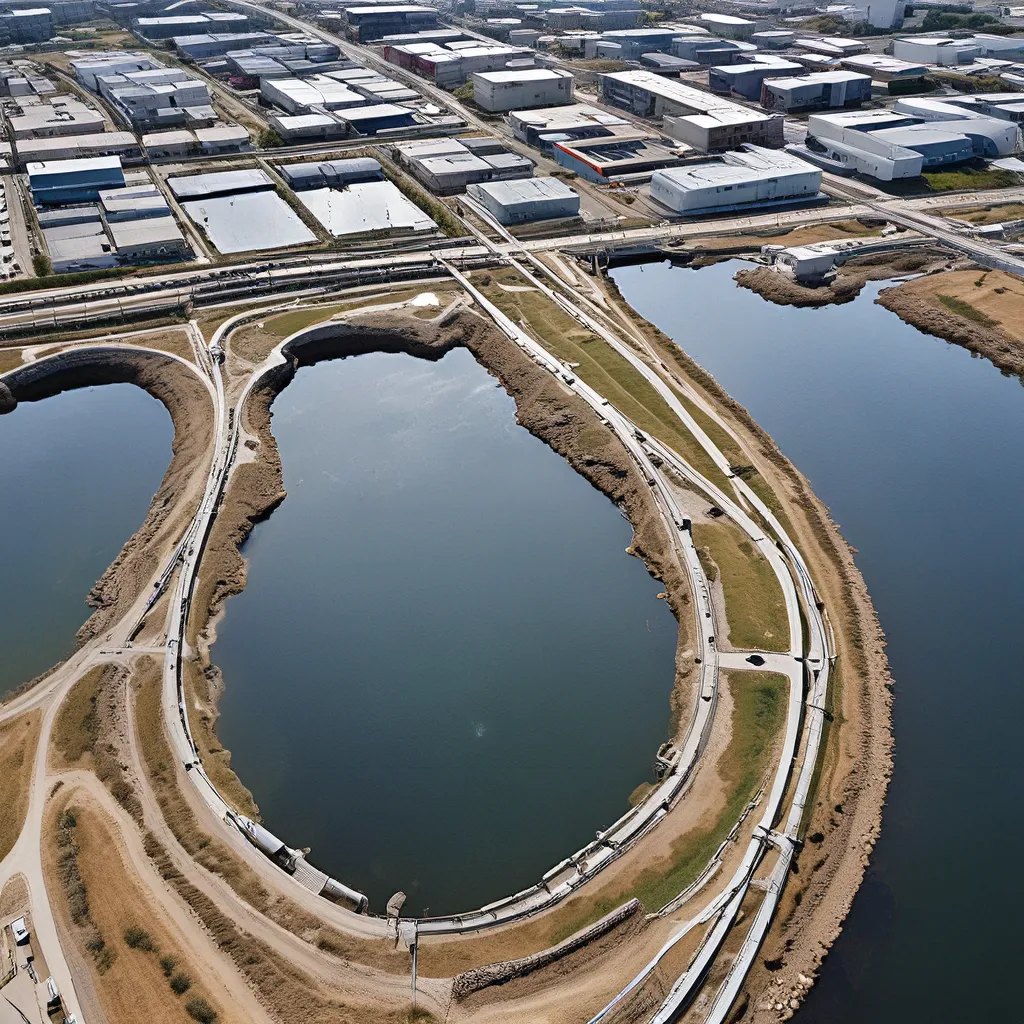
The Evolving Landscape of Wastewater Management
Wastewater management has come a long way since the primitive civilizations that used basic methods like open pits and drainage systems to dispose of their waste. As societies have advanced, so too have the technologies and processes used to treat and manage wastewater. And now, with the rise of smart cities, we’re seeing an exciting new chapter in the story of wastewater treatment.
You see, a smart city is all about leveraging the power of information and communication technologies (ICT) to enhance the quality of life for its residents. It’s about integrating various systems and services to optimize resource utilization, improve efficiency, and create a sustainable environment. And wastewater management is a crucial part of this puzzle.
Sensor networks play a crucial role in smart wastewater management, providing real-time data on water quality, flow rates, and levels. This enables the prompt detection of issues and efficient decision-making. And with the help of data analytics, cities can extract valuable insights from all that data, optimizing their wastewater systems, minimizing maintenance costs, and predicting potential failures.
But it’s not just about the tech – automation and control systems also play a big part in enhancing operational efficiency. By automating processes and optimizing resource utilization, these systems enable remote monitoring and control, resulting in more effective management and reduced operational costs.
The Benefits of Smart Wastewater Management
So, what are the benefits of integrating smart technologies into wastewater management? Well, for starters, it allows for better resource utilization. By implementing advanced processes and technologies, cities can reduce water consumption, increase energy efficiency, and ensure the sustainable use of resources.
And let’s talk about the environmental and public health benefits. Efficient wastewater treatment and management contribute to improved public health by preventing the spread of diseases and minimizing waterborne illnesses. And by properly treating wastewater, cities can reduce pollution and protect aquatic ecosystems.
But it’s not just about the feel-good stuff – smart wastewater management can also lead to significant cost savings for cities. By optimizing processes, reducing water loss, and minimizing maintenance requirements, cities can achieve long-term economic benefits and allocate resources to other important areas of development.
Challenges and Considerations
Of course, with any new technology, there are always challenges to overcome. In the case of smart wastewater management, one of the biggest concerns is privacy and data security. Cities must implement robust data protection measures and ensure that personal information remains confidential, all while maintaining transparency and building trust with stakeholders.
Financing can also be a hurdle, especially for cities with limited resources. It’s crucial to evaluate the long-term costs and benefits and explore sustainable financing options to ensure the viability and affordability of these systems.
And then there’s the challenge of resistance to change and lack of awareness among stakeholders. Effective communication, education, and stakeholder engagement are essential to overcome these barriers and foster acceptance and support for smart wastewater management systems.
Leading the Way: Examples of Smart Wastewater Management
Despite these challenges, some cities are already leading the way when it comes to integrating smart technologies into their wastewater management systems. Let’s take a look at a few examples:
Barcelona has implemented a comprehensive smart water management system that utilizes advanced technologies to monitor water consumption, detect leaks, and optimize water distribution. The results? Significant water savings and improved resource efficiency.
Singapore has taken a similar approach, integrating smart technologies into its wastewater treatment plants to enhance operational efficiency and reduce energy consumption. The implementation of automation, data analytics, and real-time monitoring has enabled the city-state to achieve sustainable wastewater management.
And let’s not forget Portland, which has implemented a smart stormwater management system that utilizes sensor networks and real-time data to monitor and control stormwater flows. This has improved flood control measures and minimized environmental impact.
The Future of Smart Wastewater Management
As we look to the future, it’s clear that the Internet of Things (IoT) is going to play a big role in the evolution of wastewater management. By enabling the interconnectivity of devices and systems, IoT is revolutionizing the way we collect, analyze, and act on wastewater data.
And the rise of artificial intelligence (AI) and machine learning (ML) is also shaping the future of this field. These technologies are being increasingly used in decision-making processes, helping to analyze complex datasets, predict system behavior, and optimize operations for better resource utilization.
But it’s not just about the tech – blockchain is also offering enhanced data transparency and security in wastewater management. By utilizing decentralized and tamper-proof data storage, cities can ensure the integrity of data collected from various sources and promote trust among stakeholders.
Toward a Sustainable Future
As we continue to grapple with the challenges of urbanization and environmental degradation, the importance of smart wastewater management systems cannot be overstated. These systems play a crucial role in creating sustainable and livable cities, optimizing resource utilization, improving public health, and protecting the environment.
And the potential for expansion is immense, as more and more cities recognize the benefits and value of these systems in addressing pressing challenges. By integrating wastewater management with other smart city systems, like energy management and transportation, cities can achieve holistic and sustainable urban development.
So, while the road ahead may have its fair share of obstacles, I’m confident that with the right technologies, the right strategies, and the right level of collaboration and commitment, we can build a future where wastewater is no longer a problem, but a valuable resource in the quest for a more sustainable world. Who knows what other innovations and breakthroughs are just around the corner?